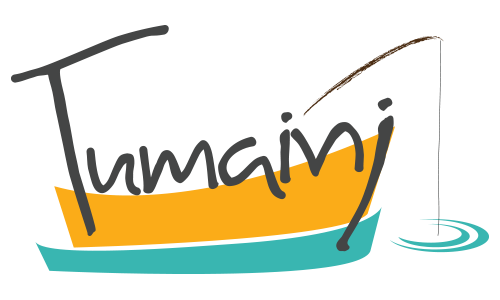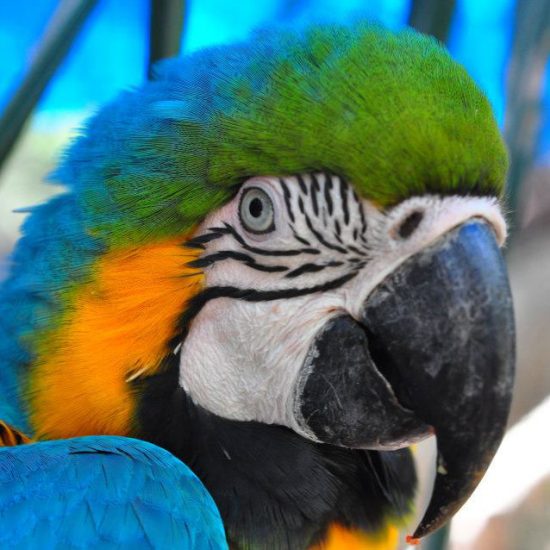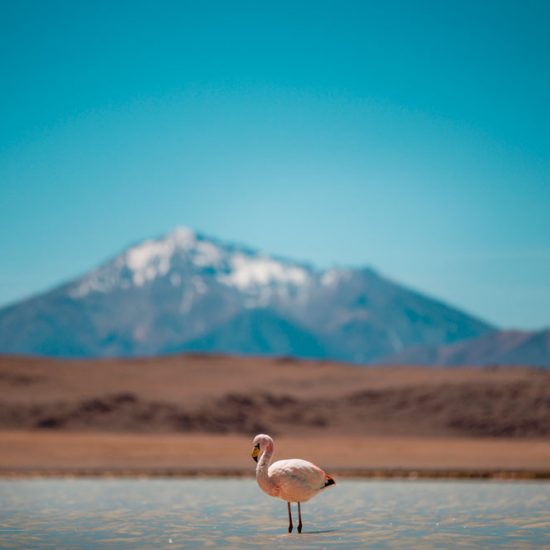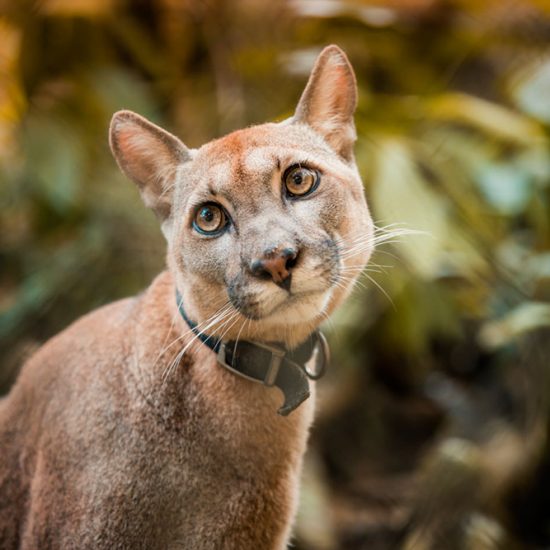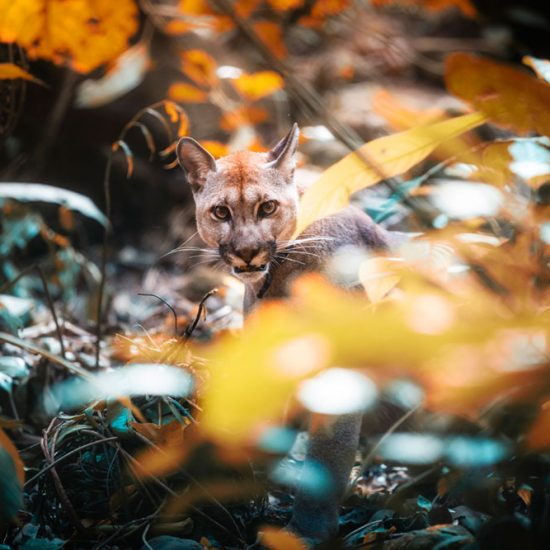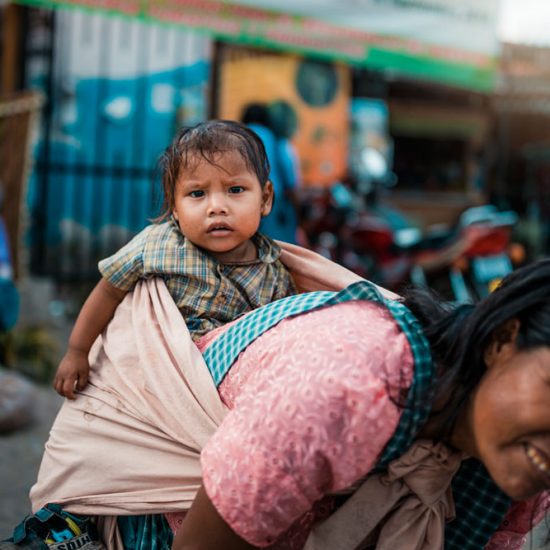Wildlife solidarity trip
According to the Food and Agriculture Organisation of the United Nations, Bolivia is one of the 15 most biodiverse countries in the world. Despite representing only 0.2% of the world's land area, the country is home to almost 400 species of mammals, 1,415 species of birds, 317 species of reptiles, 254 species of amphibians and 700 species of fish. Unfortunately, this natural wealth is not protected: there are cases of mistreatment of animals, while their habitat is disappearing. In addition, illegal wildlife trafficking continues to grow, becoming the main threat to some species.
Faced with this reality, this project was born in 1992 and initially worked with young people of limited resources, developing their self-esteem through activities in defence of the environment. At the same time, it denounced illegal animal trafficking in order to raise awareness in Bolivian society. In 1996, the organisation created the first wildlife refuge in Bolivia, promoting ex situ conservation. Currently, the project has three refuge centres with different animals but in the Chapare centre from where most of the animals were transferred to the Rurrenabaque centre, they no longer need the support of volunteers, so to collaborate you can choose one of these two centres:
- Santa María Centre: Felines (ocelots, pumas, jaguars), primates (howler monkeys, night monkeys, titi monkeys), tapirs, badgers and a diversity of birds. Recommended for stays of more than two weeks and for people who speak English, as they receive many volunteers from English-speaking countries. This is the centre that currently has the greatest need for volunteers.
- Rurrenabaque Centre: located in the middle of the Amazon rainforest, for super adventurers. At the moment there is the spider monkey group, the albifron group, the squirrel monkey group and coatis. As more infrastructures are being built, more species will be added over the months following the relocation of the Chapare centre.
In this project you will live in the middle of nature, interacting with animals that have been rescued from mistreatment and trafficking. Surrounded by the jungle, you will also meet free animals that visit the centre.

This project works towards achieving the following Sustainable Development Goals



-
Project Location
Santa María or Rurrenabaque, Bolivia -
Volunteer hours
8-9 h per day from 7:00 until 18:00 -
Volunteer activities
Preparing food for the animals, walking with them, helping with cleaning, maintenance and construction work. -
Minimal collaboration
2 weeks -
Incluido
Tumaini accompanimentLunchAccommodationLocal CoordinatorTraining courseVolunteer liability insurance -
No incluido
Tourist activitiesHot waterDinnerKitchenBreakfastAirport pick-upTravel insuranceFlightWIFI
Galería
''It's a hard experience at times, but very nice and unique. Dealing with animals, feeling their affection, knowing that you help them, meeting people, travelling alone, getting to know yourself better, adapting to different conditions, getting to know a new place. Everything makes that when you leave, you really miss it''. Naiara Francone.
Volunteer Program
Voluntary activities
- Taking animals (monkeys, birds, badgers) out of their cages and putting them on the runner.
- Take a hike with animals (monkeys, cats)
- Prepare their feeding and put enrichment
- Cleanliness of the facilities
- Maintenance and construction support
Profiles required
- Be of legal age.
- Be in good physical shape.
- That you like animals very much.
- Be open-minded, tolerant, supportive and willing to learn. Flexibility is essential, as tasks may change depending on the needs of the NGO, similarly the ability to work in a team since volunteering is done in coordination with other people.
- Wildlife lovers.
- People who can do without comforts in exchange for living in the jungle.
- Biologists, veterinarians. Also profiles from the fields of education and marketing.
A day in the project
Project Location
Project
- Chapare: is located halfway between Santa Cruz and Cochabamba. Situated very close to a village and next to one of the most important roads in Bolivia that links Santa Cruz with Cochabamba.
- Santa Maria: 7 hours north of Santa Cruz and located in the middle of the jungle. Here you will have to do without comforts such as a hot shower or bath with running water, but in exchange you will wake up to the sounds of howler monkeys.
- Rurrenabaque: in the middle of the Amazon rainforest, the environment is wonderful. Especially recommended for very adventurous people who can collaborate for at least one month.
Climate
- Chapare: The climate is quite hot and humid: the area is one of the wettest on Earth. Even in the dry season it rains a lot. The average temperature is 27°C.
- Santa Maria: tropical climate, with higher temperatures (27ºC-32ºC) and more rainfall between November and March, and lower temperatures (18ºC-25ºC) and less rainfall between April and October.
- Rurrenabaque: rainforest climate. The heaviest rains fall between November and March; however, even in the dry season (between June and September) it rains quite a lot. Temperatures range from 25ºC to 30ºC, with cooler temperatures between June and September (19ºC-25ºC).
Shared room:
- 680- 750 € for 15 days
- 800 - 875 € for 21 days
- 860 - 950 € for 30 days
- 1.540 - 1.640 € for 3 months
- 2.410 - 2.510 € per 6 months
- Search for the solidarity trip that best fits your profile and interests to provide an enriching beneficial experience for both travellers and NGOs.
- A guide of the project with useful up-to-date information on the status and needs of the project.
- Support during the preparation of your trip: visas, vaccinations, tips for buying your flight, advice on what to visit, essentials to carry in your backpack, practical information (money exchange, transport, timetables, culture, etc.).
- Tumaini coordinator available by email or phone whenever you need to solve all your doubts. Sometimes, if possible, face-to-face meetings are also held.
- Online course on solidarity travel and responsible tourism, mandatory for volunteers to get the most out of their experience.
- Contact, if possible and on request, with volunteers who have already been in the project.
- Contact, if possible and on request, with people who are going to travel on similar dates to chat before the solidarity trip, resolve doubts or organize it together.
- Accident and liability insurance specialized in volunteering.
- Follow-up during the solidarity trip.
- Letter of reference or certificate of solidarity travel/volunteering on request.
- CO2 compensation by planting a tree and monitoring it for three years on the island of Borneo in Indonesia.
- Accommodation in shared dormitories.
- Local Coordinator.
- Full board (minus Saturday dinner)
- Project T-shirt
- International ticket
- Travel insurance (compulsory)
- Visa (free of charge for Spanish nationals for stays of less than 90 days)
- Extras such as personal excursions, shopping, etc.
- A contribution to Tumaini for the efforts and assistance of the volunteers.
- A contribution to the project for board and lodging.
Services
- Sheets and pillow
- Ecological toilets
- Shower with unheated water

